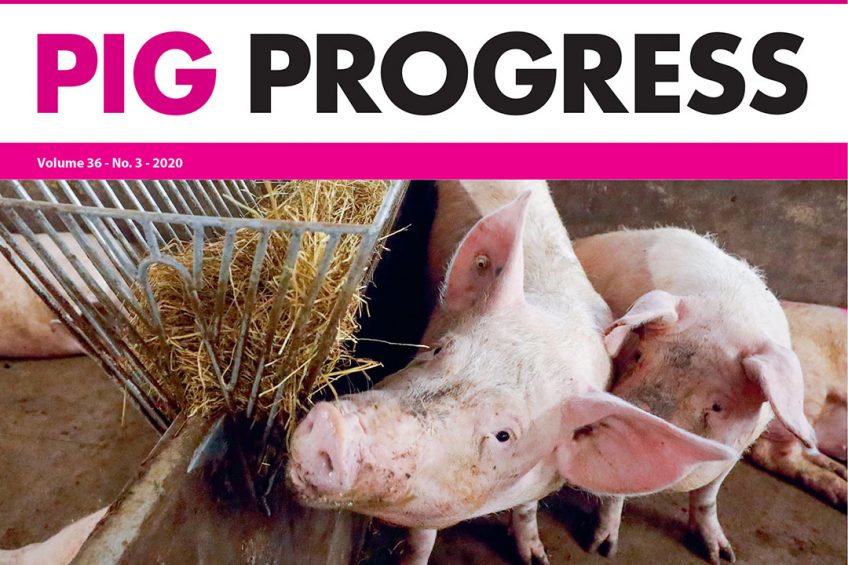Optimism, wood and China’s recovery in Pig Progress 3

The latest edition of Pig Progress is now available online. In this edition we look at what the future holds for the Chinese pig sector after ASF and visit a next generation farrow-to-finish farm in the Netherlands. A German control programme gets to grips with Salmonella, and we learn about how lignocellulose helps to shorten farrowing time.
View Pig Progress Nr. 3 digital magazine
A rapid recovery for China’s pig industry
It is estimated that China lost more than 50% of its pig herd as a result of African Swine Fever that hit the country in 2018 and 2019. In this article, Richard A. Brown, a director of Gira, discusses what the future looks like for the Chinese pig sector, and how quickly the industry might recover.
Combating Salmonella in pig farms
Salmonella is very resilient and can survive in dust for up to four years, making it a big problem in pig farms. However, work on farms in Germany taking part in Salmonella control programmes has shown that it is possible to eliminate the disease from commercial herds.

View Pig Progress Nr.3 digital magazine
Column: Approaching a problem-solving visit
Pig production advisor, columnist John Gadd, has cabinets full of hundreds of reports from his farm visits. Having helped solve a huge variety of pig farm problems, he gives us 7 pointers on how to approach a problem-solving visit?

Next generation Dutch pig farmer
Farrow-to-finish farm Jansberg in the Netherlands applies modern technology throughout the facility. Owner Tom Janssen is always looking ahead. A modern gestating area is the latest upgrade to the farm.

Improving the outcome of antimicrobial treatment
The use of antibiotics is an integral part of a swine health plan, which includes health monitoring, disease diagnosis, disease prevention and disease treatment measures.

Lignocellulose helps to shorten farrowing time
The longer a piglet struggles to pass through the birth canal, the more disadvantaged the piglet will be. Prolonged farrowing also correlates with reduced fertility of sows. By supplementing lignocellulose, an Austrian swine producer shortened the entire birth process per sow by just over 3 minutes.

Feed for Thought: Sustainability
Casey Bradley, president of the Sunswine Group, talks in her column about sustainability with the backdrop of an ever-changing world.

To read the full articles, simply click on the digital magazine section and then on Pig Progress 2020-3. Registration is free.











